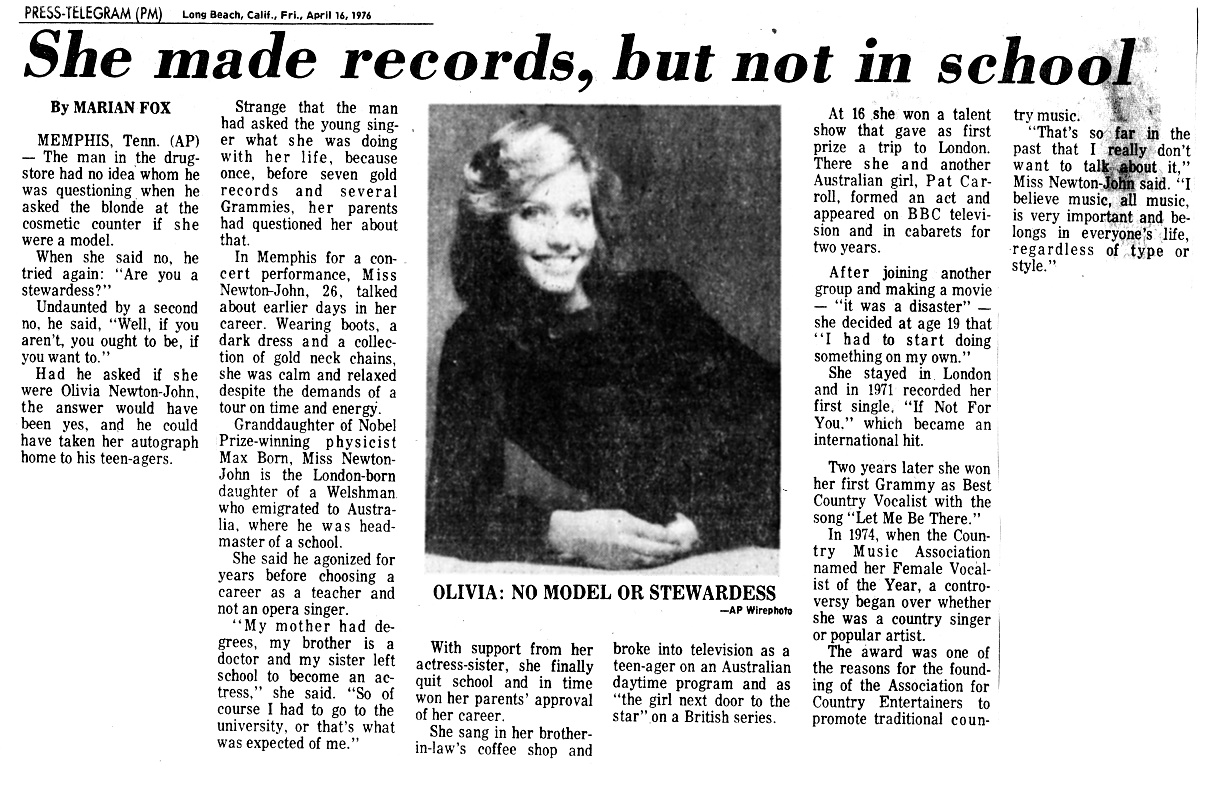She made records but not in school
MEMPHIS, Tenn. (AP) The man in the drugstore had no idea whom he was questioning when he asked the blonde at the cosmetic counter if she were a model. When she said no, he tried again: “Are you a stewardess?” Undaunted by a second no, he said, “Well, if you aren’t, you ought to be, if you want to.” Had he asked if she were Olivia Newton-John, the answer would have been yes, and he could have taken her autograph home to his teen-agers. Strange that the man had asked the young singer what she was doing with her life, because once, before seven gold records and several Grammies, her parents had questioned her about that.
In Memphis for a concert performance, Miss Newton-John, 26, talked about earlier days in her career. Wearing boots, a dark dress and a collection of gold neck chains, she was calm and relaxed despite the demands of a tour on time and energy’. Granddaughter of Nobel Prize-winning physicist Max Born, Miss Newton- John is the London-born daughter of a Welshman who emigrated to Australia, where he was headmaster of a school. She said he agonized for years before choosing a career as a teacher and not an opera singer. “My mother had degrees, my brother is a doctor and my sister left school to become an actress,” she said. “So of course I had to go to the university, or that’s what was expected of me.”
With support from her actress-sister, she finally quit school and in time won her parents’ approval of her career. She sang in her brother-in-law’s coffee shop and broke into television as a teen-ager on an Australian daytime program and as “the girl next door to the star” on a British series. At 16 she won a talent show that gave as first prize a trip to London. There she and another Australian girl, Pat Carroll, formed an act and appeared on BBC television and in cabarets for two years.
After joining another group and making a movie “it was a disaster” she decided at age 19 that “I had to start doing something on my own.” She stayed in London and in 1971 recorded her first single, “If Not For You,” which became an international hit. Two years later she won her first Grammy as Best Country Vocalist with the song “Let Me Be There.” In 1974, when the Country Music Association named her Female Vocalist of the Year, a controversy began over whether she was a country singer or popular artist. The award was one of the reasons for the founding of the Association for Country Entertainers to promote traditional country music.
“That’s so far in the past that I ready don’t want to talk about it,” Miss Newton-John said. “I believe music, all music, is very important and belongs in everyone’s life, regardless of type or style.”
